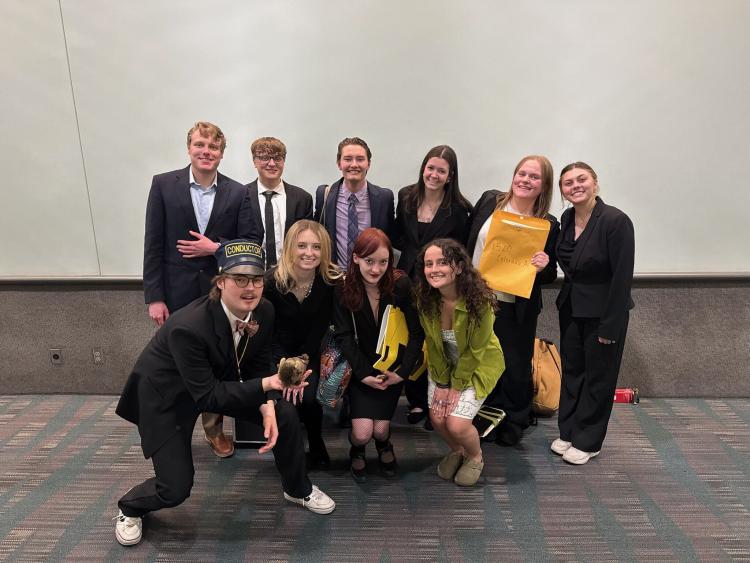About College Mock Trial

Mock Trial is a competitive activity where college students simulate real courtroom trials. Students play the roles of attorneys and witnesses, arguing fictional legal cases in head-to-head matchups against other schools. Attorneys deliver statements, question witnesses, raise objections, and present evidence, while witnesses portray compelling, believable characters. Rounds are judged by real attorneys and judges, who score performances and provide feedback.
In the U.S., undergraduate Mock Trial is governed by the American Mock Trial Association (AMTA). Each August, AMTA releases a fictional case file complete with witness statements, expert reports, legal statutes, and evidence. Teams use this case to prepare for a season of competition, beginning with invitational tournaments in the fall and culminating in official AMTA tournaments starting with Regionals in February. More than 600 teams compete at Regionals each year.
Roughly one-third of teams advance from Regionals to the Opening Round Championship Series (ORCS) in March, where only the top 50 teams earn a spot at the National Championship in April. After nationals, the season winds down during finals and summer break. By August, a new case is released, and it all begins again!


